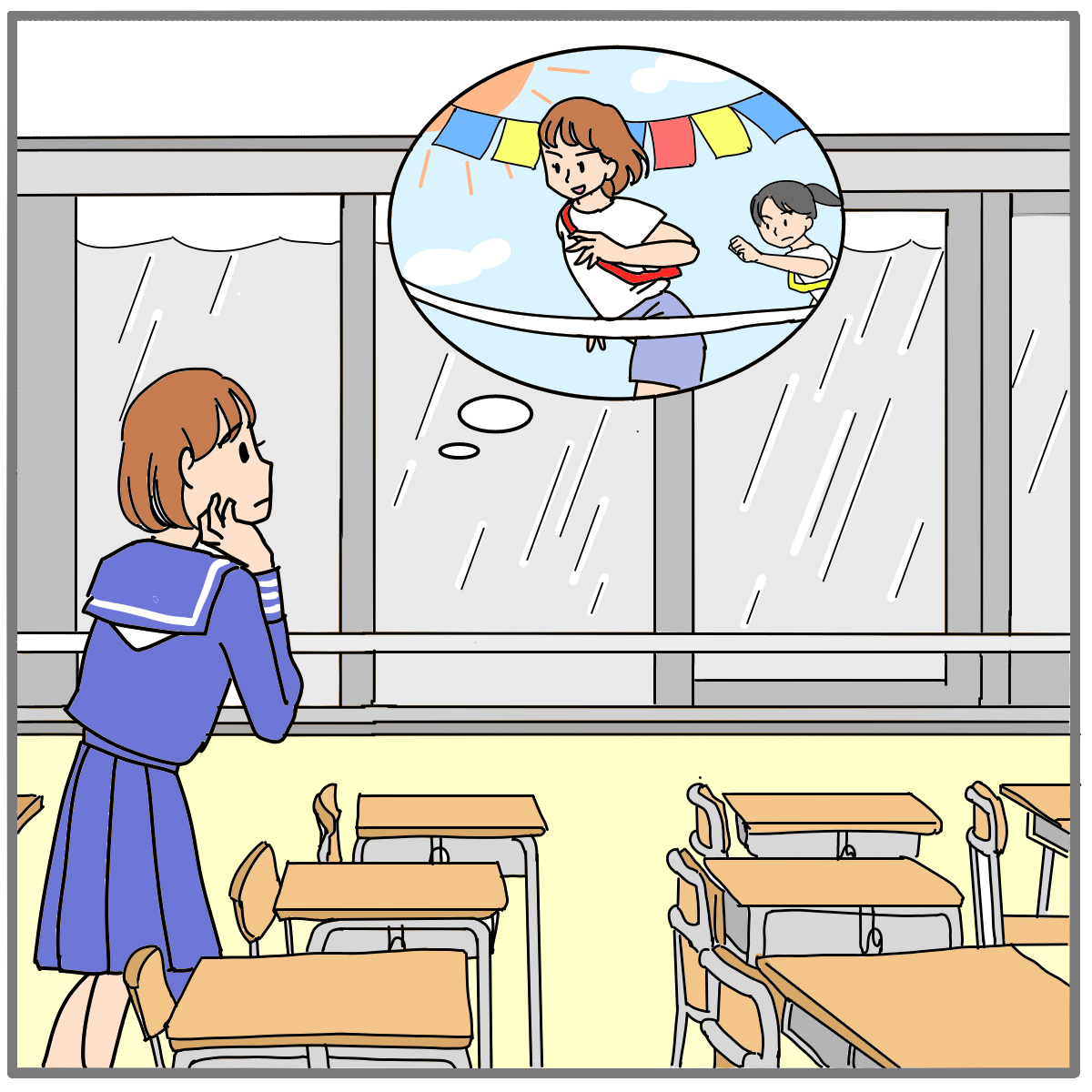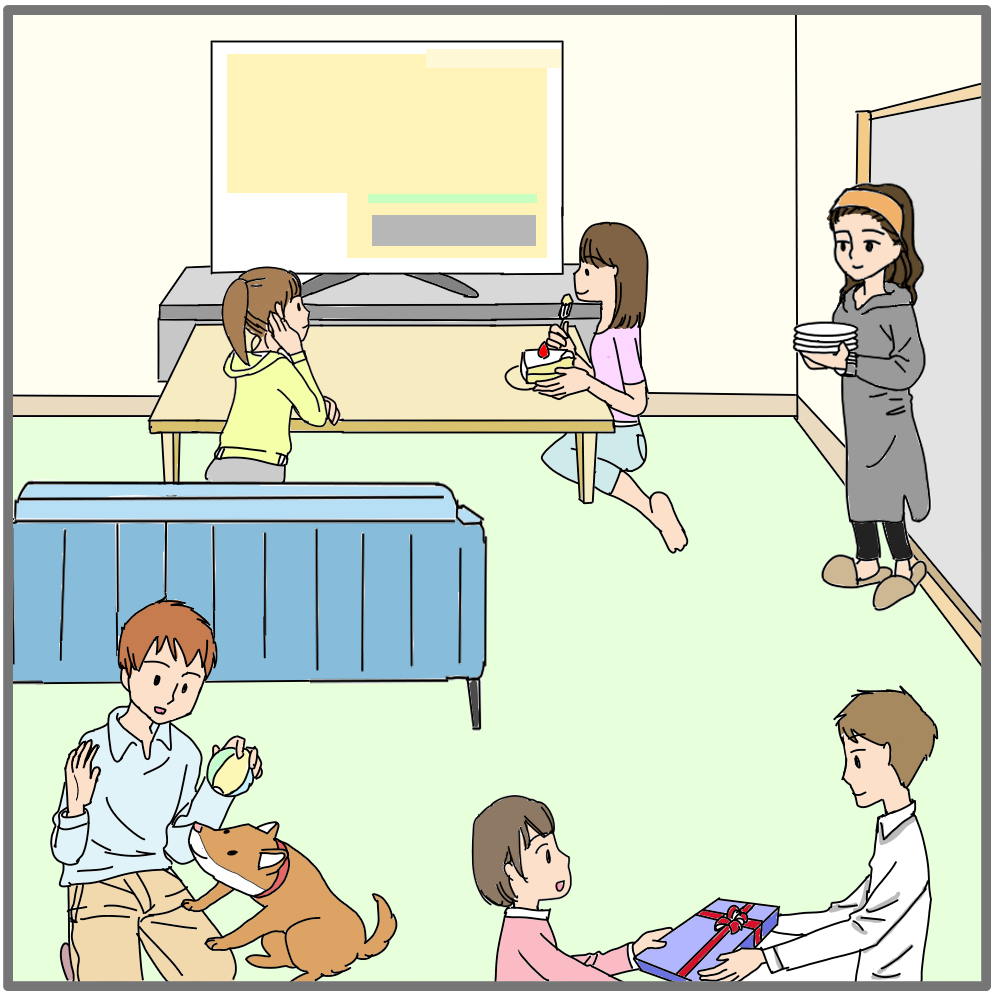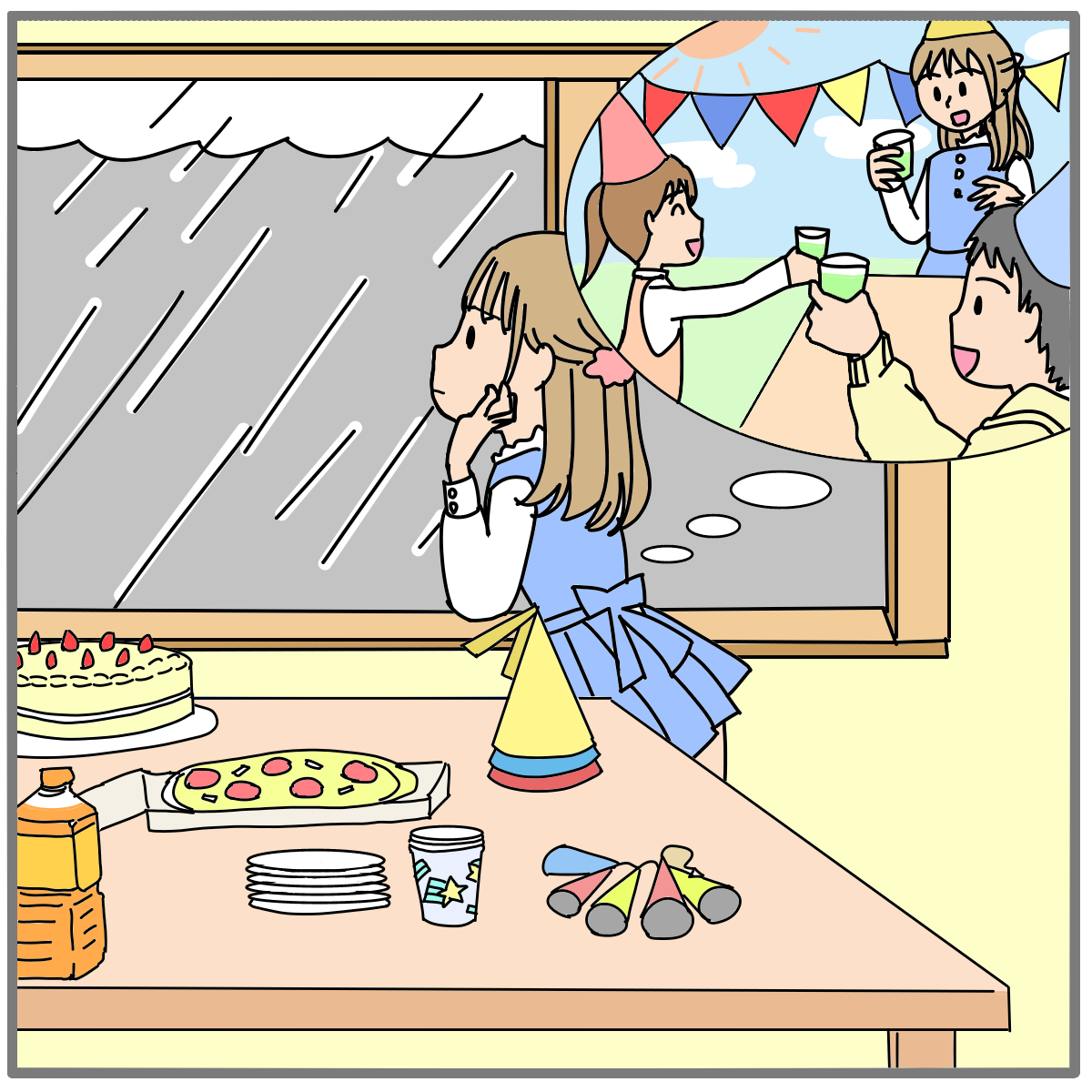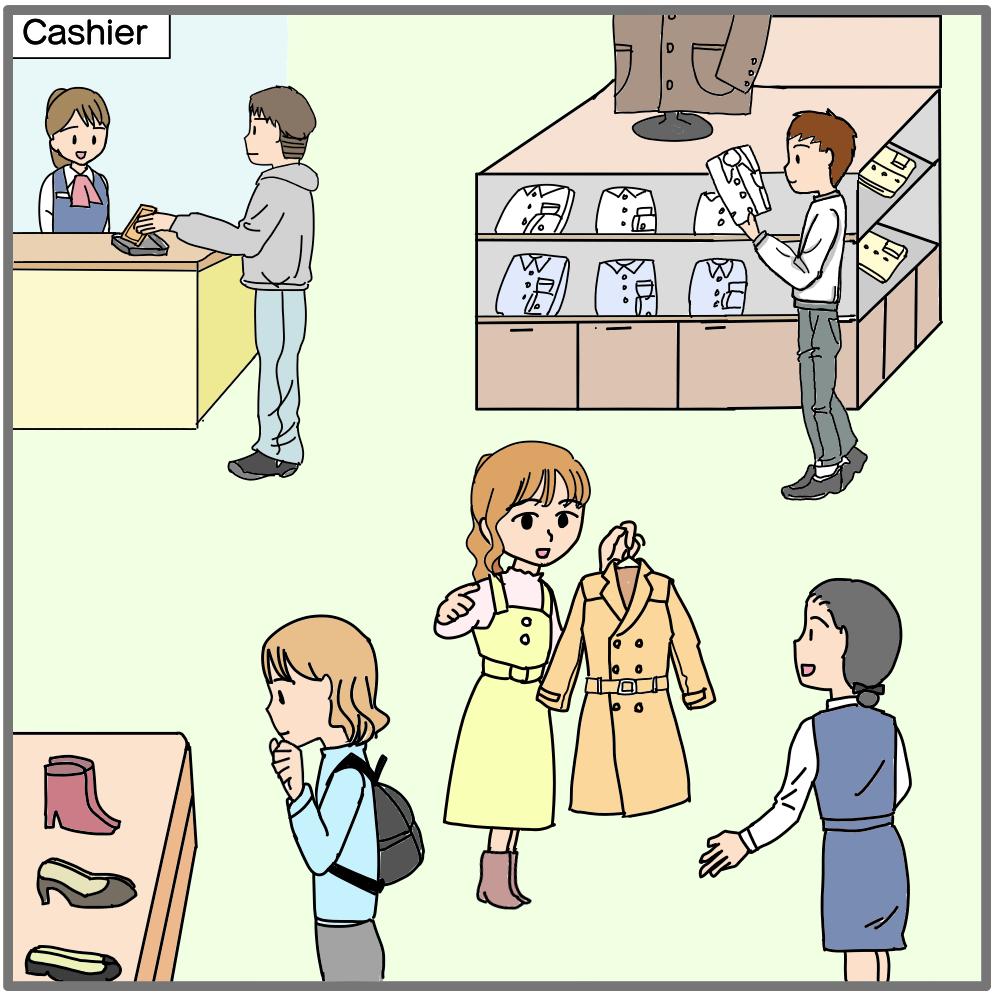PART A_1
Please read the passage aloud, starting from the title.
文章を読みましょう。タイトルから読み始めてください。
(Please send the mispronounced words and expressions to your student.)
PART A_2
Coping with Stress
Nowadays, some people love traveling. The idea of traveling, packing their bags, and going somewhere new is always on their minds. When they are stressed out from work, traveling is one way to reduce stress. Some people do this so they can keep their minds sharp, cope with stress, and learn about things that make them truly happy.
PART A_3
I will ask you a question. Please answer based on the passage. Your answer should start with “By…”
講師が質問をします。文章をもとに答えてみましょう。また、答えは By から始めて下さい。
PART A_4
| Question: | According to the passage, how do some people keep their minds sharp, cope with stress, and learn about things that make them truly happy? | ||
| Answer: | By | . |
PART A_5
Now, let’s review your answer.
ではあなたの答えを復習してみましょう。
(Please review your student’s answers by sending the correct answers in complete sentences. You may also give tips.)
PART A_6
PART B_1
Please look at the pictures below. Then, please answer the questions based on the pictures.
下記のイラストを見てください。講師が質問をします。
PART B_2

| 1. | In the first picture, what did the girl suggest to her father? |
| Answer: | |
| 2. | In the second picture, what was the girl doing? |
| Answer: | |
| 3. | In the third picture, what was the girl doing? |
| Answer: | |
| 4. | In the third picture, what was the girl’s father thinking about? |
| Answer: |
PART B_3
Now, let’s review your answers.
ではあなたの答えを復習してみましょう。
(Please review your student’s answers by sending the correct answers in complete sentences. You may also give tips.)
PART B_4
PART B_5
Now, you will connect each sentence to tell a story. Your story should start with “One day, Lisa suggested to her father that she wanted to learn the piano.”
それぞれの文章を繫げて、ストーリーを話しましょう。回答は、One day, Lisa suggested to her father that she wanted to learn the piano. から始めてください。
(Please review your student’s answers by sending the correct answers in complete sentences. You may also give tips.)
PART B_6

| One day, Lisa suggested to her father that she wanted to learn the piano. | ||
| . | ||
| A few weeks later | . | |
| . | ||
| Six months later | . | |
| . |
PART B_7
Now, let’s review your answers.
ではあなたの答えを復習してみましょう。
(Please review your student’s answers by sending the correct answers in complete sentences. You may also give tips.)
PART B_8
PART C_1
Express your opinions on the following topics. You will be asked to give two answers. Your first answer should start with “I agree”. Your second answer should start with “I disagree”.
Now, please give your first answer starting with “I agree.” Give at least one reason to support your opinion and answer in two sentences.
Now, please give your first answer starting with “I agree.” Give at least one reason to support your opinion and answer in two sentences.
賛成、反対両方の意見を表現してみましょう。まずは1つ以上の理由をつけて、賛成意見を述べましょう。
回答は「I agree.」で始め、二つの文章で答えて下さい。
回答は「I agree.」で始め、二つの文章で答えて下さい。
PART C_2
|
Some people say it’s better to travel by group than to travel alone. What do you think about that? |
|
| I agree. |
PART C_3
Now, let’s review your answer.
では、あなたの答えを復習してみましょう。その後、修正したあなたの答えを読んでみましょう。
(Please review your student’s answers by sending the correct answers in complete sentences. After that, ask your student to read aloud his or her corrected answers.)
PART C_4
PART C_5
Now, try to express your opinion in the opposite situation. Give at least one reason to support your opinion. You should start with “I disagree.” and answer in two sentences.
次に反対の立場になって意見を表現しましょう。回答は「I disagree.」で始め、1つ以上の理由を述べてください。
意見は二つの文で述べましょう。
意見は二つの文で述べましょう。
PART C_6
|
Some people say it’s better to travel by group than to travel alone. What do you think about that? |
|
| I disagree. |
PART C_7
Now, let’s review your answer.
では、あなたの答えを復習してみましょう。その後、修正したあなたの答えを読んでみましょう。
(Please review your student’s answers by sending the correct answers in complete sentences. After that, ask your student to read aloud his or her corrected answers.)
PART C_8
PART D_1
Express your opinions on the following topics. You will be asked to give two answers. Your first answer should start with “Yes”. Your second answer should start with “No”.
Now, please give your first answer starting with “Yes”. Give at least one reason to support your opinion, and answer in two sentences.
Now, please give your first answer starting with “Yes”. Give at least one reason to support your opinion, and answer in two sentences.
賛成、反対両方の意見を表現してみましょう。まずは1つ以上の理由をつけて、賛成意見を述べましょう。
回答は「Yes.」で始め、二つの文で答えて下さい。
回答は「Yes.」で始め、二つの文で答えて下さい。
PART D_2
|
Some people say reading e-books is better than traditional books. Do you think e-books are better than traditional books? |
|
| Yes. |
PART D_3
Now, let’s review your answer.
では、あなたの答えを復習してみましょう。その後、修正したあなたの答えを読んでみましょう。
(Please review your student’s answers by sending the correct answers in complete sentences. After that, ask your student to read aloud his or her corrected answers.)
PART D_4
PART D_5
Now, try to express your opinion in the opposite situation. Give at least one reason to support your opinion. You should start with “No.” and answer in two sentences.
次に反対の立場になって意見を表現しましょう。回答は「No.」で始め、1つ以上の理由を述べてください。意見は二つの文で述べましょう。
PART D_6
|
Some people say reading e-books is better than traditional books. Do you think e-books are better than traditional books? |
|
| No. |
PART E_1
You will answer the questions based on the data below. I will check if your sentences are complete and if the grammar is correct.
以下の情報をもとに、質問にこたえましょう。
PART E_2
You will be on vacation for three days. Look at the travel schedule and answer the following questions.
あなたは3日間の休暇を取ります。旅行のスケジュールを見て、質問に答えましょう。

| 1. | What will you do on the first day? |
| Answer: | |
| 2. | Where will you go on your last day of vacation? |
| Answer: |
PART E_3
Now, let’s review your answers. After that, please read aloud your corrected answers.
ではあなたの答えを復習してみましょう。その後、修正したあなたの答えを読んでみましょう。
(Please review your student’s answers by sending the correct answers in complete sentences. After that, ask your student to read aloud his or her corrected answers.)
PART E_4
REVIEW AND FEEDBACK
Now, let us review the things that you learned in this lesson.
ではこのレッスンで学んだことを振り返りましょう。
(Please give a short feedback on how your student did in your class.)
| Grammar 文法 |
Pronunciation 発音 | Vocabulary 単語 |
Comprehension 理解 |
|
|---|---|---|---|---|
 GOOD GOOD |
文法の誤りはほとんどなく、完全な文章で話すことができる | ほとんどの単語をはっきりと正しく発音することができる | 習った表現を適切に使うことができる | 文章を理解し、質問に正しく答えることができる |
 FAIR |
文法の誤りはあるが、完全な文章で話すことができる | 発音の練習が必要な言葉がいくつかある | たまにミスはあるが、習った表現を適切に使うことができる | 文章を完全に理解するのは難しく、質問に正しく答えられないときもある |
 POOR |
文章で話すのは難しく、単語だけで話すことができる | 発音の練習が必要である | 習った単語と表現を少しだけ使うことができる | 文章を理解するのは難しく、質問に答えるのは難しい |
















